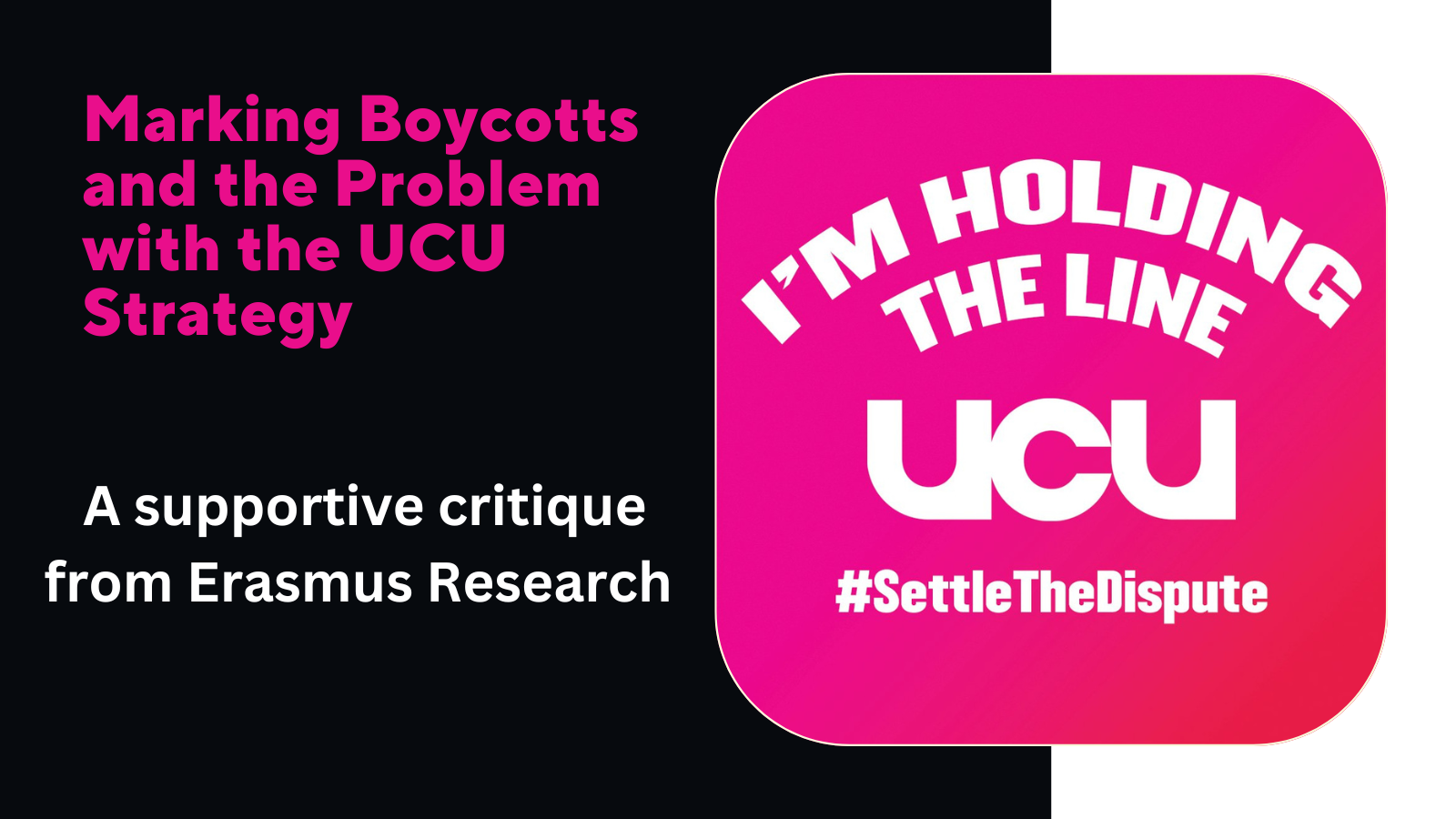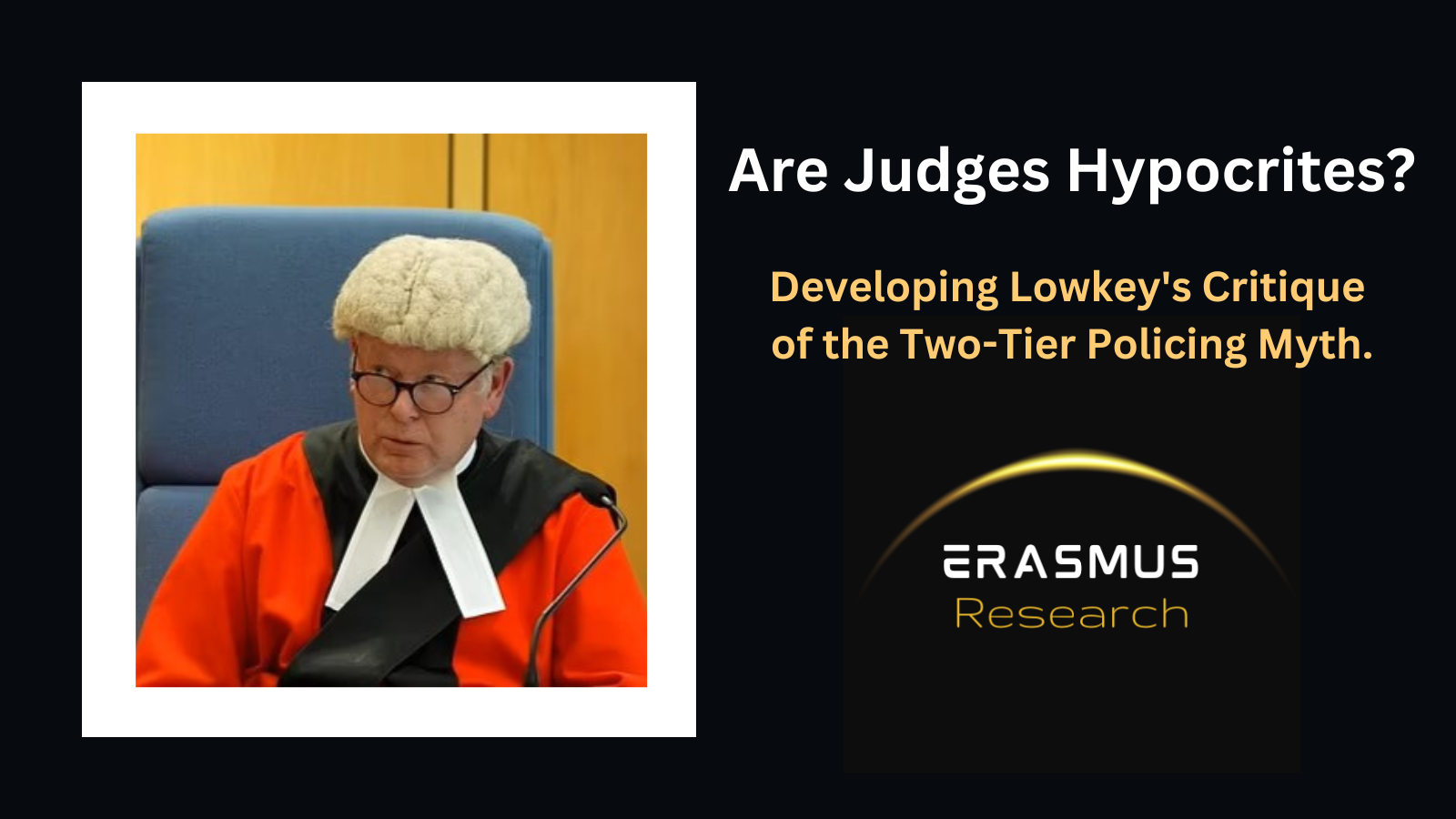Instead of forcing employers back to the negotiating table, the marking and assessment boycott facilitated a regime of performative punishment, on a national scale, inflicted upon the dissenting minority who stood up to fight for their pay and conditions. This blog will explain why the strategy failed, and why it was so easy to turn this well-meaning collective action from something that was designed to hurt the employers, into something that humiliated and brutalised participating staff, further destroying morale.
The University and College Union (UCU)’s current marking and assessment boycott is the culmination of almost a decade of intermittent actions to improve the pay and conditions of its academic members.
Academics are no different from the range of professional groups whose pay and conditions, once regarded as ‘comfortable’, have been stagnant for decades as the cost of living, particularly housing costs, have continued to rise. Many of the academics who contribute to the collective that is Erasmus Research have been in the thick of this battle for the last 10 years. However, although fully committed to direct action, we have never lost sight of the fact that it is not without its problems.
The point of ‘industrial action’, is to force the employer to the negotiating table. The aim is to inflict significant harm on the employer, making the status quo so untenable, a negotiated settlement is the most likely outcome. This objective has, to date, been mostly unsuccessful. There have been some negotiations, but mostly, university management have simply never been put under enough pressure to force them back to the table. This has been due to strategic errors by the UCU’s leadership, in part as result of a distinct lack of experience in organising worker’s struggles on a national scale.
In previous actions around what the UCU called the ‘Four Fights’, academic staff had their wages curtailed while their teaching and marking was rearranged; a strategy that could not have been more detrimental had it been designed by the employers themselves. However, not all the obstacles to success have been the result of strategic weaknesses. There is an entire raft of practical reasons why progress has been disappointingly slow.
Around a quarter of university staff are members of the UCU, with roughly 66,000 union members involved in teaching and research from a total of 225,000 employed in the sector. While there have been many academics who have been fully committed to the marking and assessment boycott (MAB), for most staff, it has been business as usual. This is why, according to university bosses, only a third of final year students were affected by the MAB.
The body representing the university sector, the Universities and Colleges Employers Association (UCEA), has said that since the MAB has had only a ‘limited impact’, the UCEA is refusing to reopen negotiations for the 23/24 academic year. Academic institutions affected by MAB have responded by imposing between 50 and 100% pay deductions upon academic staff who refused to mark student work, despite the fact that essay and exam marking has almost always been traditionally done in the employee’s own time in order to meet moderation board deadlines and although time consuming and often concentrated, has never made up anything like 50% never mind 100% of their work load.
The anecdotal evidence from correspondence circulated on social media shows that employers have routinely issued payment deduction notices coupled with notices simultaneously ending fixed term contracts with no extension or period of continuation offered. This kind of open intimidation seems to be a wide spread practice among the managerialist class in charge of the UK’s higher education sector.
As well as punitive deductions, we have been told of some universities offering extra payment to members of staff who are not on strike in order to cover the marking of colleagues engaged in the MAB. This is unique in a profession when bonuses and ‘over-time’ are almost entirely unheard of and has had the effect of destroying what little morale remained in higher education.
Putting aside the deplorable behaviour of university bosses for a minute, the point has to be made that when a strategy is drawn up by union officials, it must seek to inflict maximum harm on employers. This strategy put forward by UCU simply made it easy for bosses to punish those participating in the MAB with severe financial penalties, while simultaneously heaping even more misery on students whose academic experience was adversely affected by the lockdown policies during the COVID pandemic.
Why have the UCU actions been so ineffective?
In a word… fragmentation. While UCU members have made significant financial sacrifices during the MAB period, for more than three quarters of academic staff, it has been business as usual. Although university teaching and research posts are mainly populated by middle class academics, there is no class basis for this action. The political dimension of any strike must draw attention to the importance of collective struggle in defeating a common enemy. Although the overwhelming majority of academics are positioned on the liberal left of the political spectrum, they lack the experience of workplace organising as well as a wider knowledge of the requisite tactics and strategies that are essential in any struggle between workers and their employers.
The problem in academia is that decades of individualisation and open (and often savage) competition for jobs and funding has created a cohort of professionals who are more likely to see their colleagues as a threat to their own career progression. There is no doubt that the MAB has allowed some staff to gain favour with employers at the expense of their colleagues who are not only losing money, but are also being singled out as being part of a troublesome minority by those responsible for recruitment and promotion.
Within the academic community participating in the MAB, the social and economic spectrum is extremely wide. Financially secure members of the professorial cohort work alongside new post-doctoral researchers who are employed to bear the brunt of much of the marking and who, already encumbered by debt, are the most adversely effected by the financial penalties imposed by employers for failure to meet their contractual obligations in full.
Some universities offered payments from a national strike fund, but we are also aware that some of these funds were offered on a means-tested basis as a ‘hardship’ payment which, we believe, discouraged uptake. This lack of consistency within the welfare function of separate UCU branches further undermined the ability of the union to maximise the potential for action.
So, in summary, the unintended consequences of the UCU strategy have been to further divide the academic community, to disproportionately punish the lowest paid and most precarious academic staff members and to strengthen the hand of the professional managerial class who have taken over the corporate university.
It is imperative to avoid the same mistakes going forward. Any future strategy adopted by the UCU must make it difficult, not easy, for employers to gratuitously inflict punishment upon those who dare to dissent, while making the lives of both those who participate in the action as well the students incrementally more miserable. In short, the UCU needs to ensure that action short of a strike does not allow university bosses to reap the symbolic profits derived from the easy implementation of a performative punishment regime that humiliates and brutalises participating staff. What is needed is a strategy that unites staff, grows support for the union, and leaves the bosses no alternative but to sit down and reopen negotiations.
The future of the academic sector in the UK, depends upon it.







